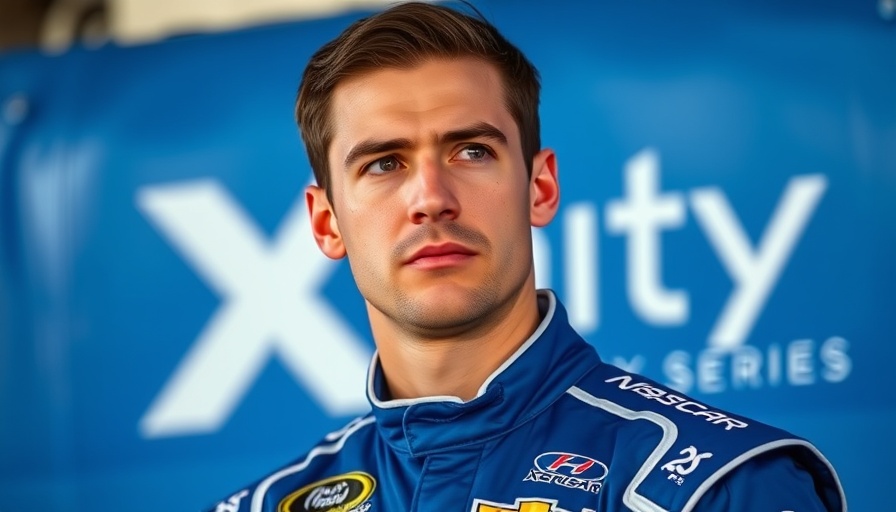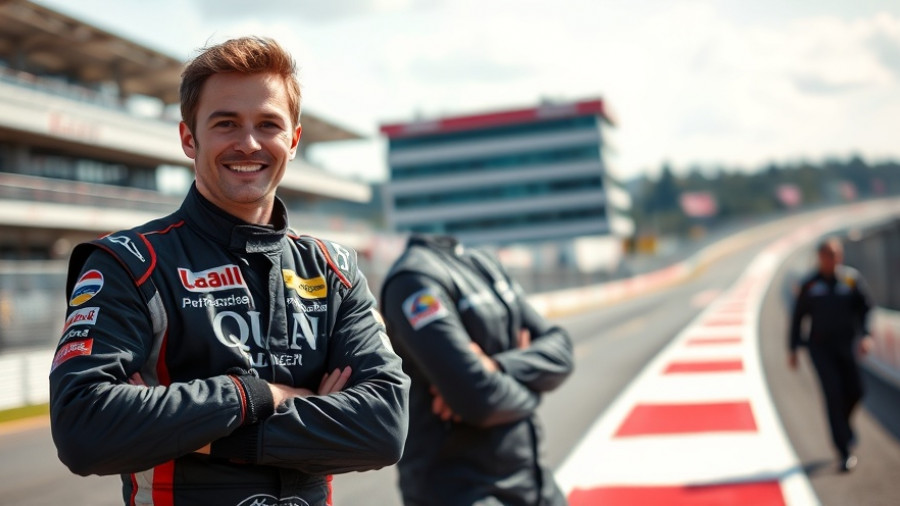
NASCAR’s Tough Stance on Reckless Driving
In the thrilling world of NASCAR, the line between competitive spirit and recklessness can sometimes blur, leading to intense rivalry and heated controversies. This was starkly evident during the recent NASCAR Xfinity Series race at Indianapolis Motor Speedway, where Austin Hill found himself at the center of a potential scandal following a dangerous incident involving Aric Almirola.
As Hill battled for position, a series of unfortunate events unfolded when Almirola attempted to overtake him. Their contact sent Almirola crashing into an unprotected section of the wall, a moment that could have ended in disaster. While NASCAR's decision to hold Hill for five laps for "reckless driving" was undoubtedly heated, one must consider the broader implications of such actions in the sport. Hill's furious radio commentary only fueled the flames of controversy, drawing a line between competitive passion and unsportsmanlike conduct.
A Closer Look at NASCAR's Penalty History
An interesting point arises when examining the history of NASCAR penalties. Incidents like Hill's typically result in suspensions, as seen with Bubba Wallace in 2022 and Chase Elliott in 2023, but the governing body also has the chance to impose different penalties. Austin Cindric's lesser punishment for a similar incident earlier this year — merely points and a monetary fine — suggests NASCAR is willing to consider context. Unlike Cindric's less severe incident, Hill's actions resulted in significant damage and a safety issue, thus raising the stakes significantly.
The New Playoff Waiver Rules:
As the stakes climb even higher, the new playoff waiver rules coming into effect in 2025 make the situation even more complicated. If Hill were to receive a suspension, the loss of playoff bonus points and future points could be detrimental to his season. These potential consequences add a layer of gravity to NASCAR’s upcoming decision regarding his penalties, aligning with a growing trend of increasing penalties and stricter enforcement of sportsmanship in racing.
What This Means for Hill and NASCAR
For fans and drivers alike, the question looms: is NASCAR set to send a message? With the future of competitive motorsport hanging in the balance, the choices made now will echo through the halls of racing legends for years to come. As racing enthusiasts, we must question the implications of aggressive driving — does it bolster our love for the sport or jeopardize the safety of the very athletes we cheer for? Austin Hill’s situation offers an opportunity to delve deep into sportsmanship, rivalry, and safety in NASCAR.
While we await NASCAR’s ruling, the conversation has been ignited. What do you think would be a fair penalty for a situation like this? Join the discussion!
 Add Row
Add Row  Add
Add 




Write A Comment